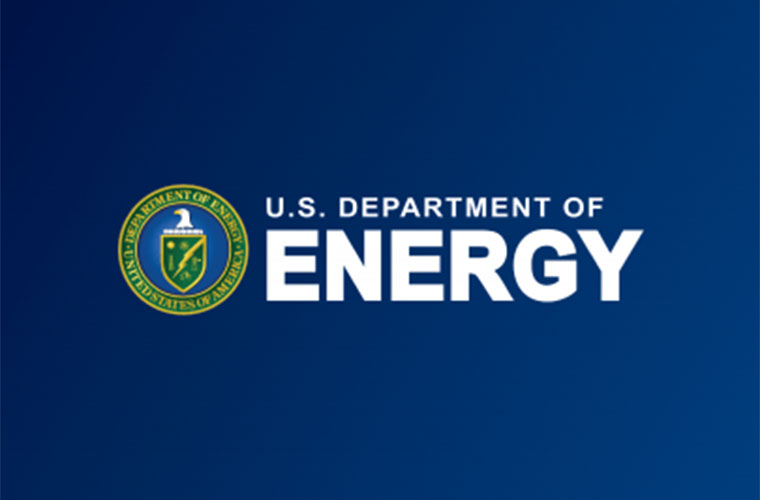WASHINGTON, D.C. — As part of the Biden-Harris Administration’s Investing in America agenda, the U.S. Department of Energy (DOE) announced $149.87 million for 67 energy conservation and clean energy projects at Federal facilities across 28 U.S. states and territories and six international locations.
Funded by President Biden’s Bipartisan Infrastructure Law, the selected projects will advance the adoption of cleaner, more cost-effective technologies to reduce pollution, improve air quality, create good-paying jobs, and slash the Federal Government’s carbon footprint. The announcement represents the second and final installment of the $250 million Assisting Federal Facilities with Energy Conservation Technologies (AFFECT) grant program, which will help the Federal Government achieve President Biden’s goal of net-zero greenhouse gas emissions from all Federal buildings by 2045. This AFFECT announcement will be bolstered by leveraging nearly $1.6 billion in private capital and Federal funds, corresponding to a total investment of $13.50 for every Federal dollar spent—maximizing value for taxpayers while also helping tackle the climate crisis.
“It is imperative that Federal facilities are able to operate in the face of increasingly intense extreme weather events, and the Biden-Harris Administration is leading by example through its support of energy resiliency and building efficiency measures,” said U.S. Secretary of Energy Jennifer M. Granholm. “Today’s announcement will empower Federal facilities across the United States to upgrade critical infrastructure with cutting-edge, cost-effective technologies they need to improve reliability while saving taxpayers money.”
“President Biden and Vice President Harris charged the Federal Government, as the nation’s largest energy consumer and building owner, to use the full power of the Federal footprint to catalyze change and tackle the climate crisis,” said U.S. Chief Sustainability Officer Andrew Mayock with the White House Council on Environmental Quality. “Today’s Bipartisan Infrastructure Law investment is another example of how the President’s Investing in America agenda is supporting U.S. manufacturing and climate action while saving taxpayers money and building healthier communities.”
Managed by DOE’s Federal Energy Management Program (FEMP), the AFFECT projects will support the transition to net-zero emissions Federal buildings by implementing clean energy technologies such as battery energy storage systems, microgrids, and building automation systems and integrating renewable energy through solar photovoltaics, wind, and geothermal. These upgrades are essential for enhancing energy efficiency and reducing reliance on fossil fuels. These projects support achievement of the Federal sustainability goals established in Executive Order 14057 and the Federal Building Performance Standard.
Selected projects include:
- Creativity and resourcefulness combine with underutilized technologies to meet Federal and agency goals: A Federal building and courthouse in Montana will repurpose abandoned mining caves’ groundwater for a geothermal heating and cooling system to replace existing gas boilers; a DOE national laboratory in California will expand its microgrid solution to 9.4 megawatts of solar PV capacity and boost battery energy storage to 2,000 kilowatt-hours; and a Coast Guard yard in Maryland will slash on-site fossil fuel usage with a comprehensive ground-source heat pump solution.
- Complete elimination of on-site fossil fuel in five Federal projects: Through comprehensive retrofitting and electrification efforts, these projects will eliminate 100% of their direct on-site (Scope 1) emissions, demonstrating an important step toward decarbonization and advancing progress toward more sustainable Federal infrastructure.
- Achieving net-zero water at a military fort in South Texas: Facing chronic water scarcity, this project will implement advanced water conservation technologies to create a self-sustaining water system, ensuring long-term resilience and operational continuity while addressing critical resource challenges in the region.
The collective 67 projects announced will deliver substantial benefits:
- Reduce greenhouse gas emissions equivalent to removing 19,370 gas-powered vehicles from the road annually (81,388 Mt CO2e/year).
- Save taxpayers $41.7 million annually in energy and water costs.
- Achieve energy savings equivalent to powering 35,701 homes annually (883,525 MMBtu/year).
- Conserve more than 1 billion gallons of water annually—enough for 24 million loads of laundry.
- Generate carbon pollution-free electricity equivalent to driving 494 million miles in electric cars (176,383 MWh/year).
- Support 20 projects (30% of selected projects) located in or adjacent to disadvantaged communities, creating jobs and driving local economic development.
- Ensure that 100% of projects comply with Made in America (Executive Order 14005) which will boost American manufacturing and good-paying Union jobs.
This announcement underscores the Biden-Harris Administration’s ongoing efforts to tackle the climate crisis and lead by example in Federal sustainability. More than $1 billion in funding was requested by Federal agencies—more than ever before in the 10-year history of AFFECT—highlighting the importance of the AFFECT grant program and substantial interest in clean energy initiatives. Furthermore, Phase 2 successfully leveraged all remaining funds from the $250 million Bipartisan Infrastructure Law allocation made available in 2023. Applications for Phase 2 doubled compared to Phase 1, which included 31 selected projects , reflecting a surge in interest following Phase 1’s record-breaking figures.
For more information on AFFECT and the Phase 2 project selections, visit the project descriptions webpage.
Selection for award negotiations is not a commitment by DOE to issue an award or provide funding. Before funding is issued, DOE and the applicants will undergo a negotiation process, and DOE may cancel negotiations and rescind the selection for any reason during that time.






